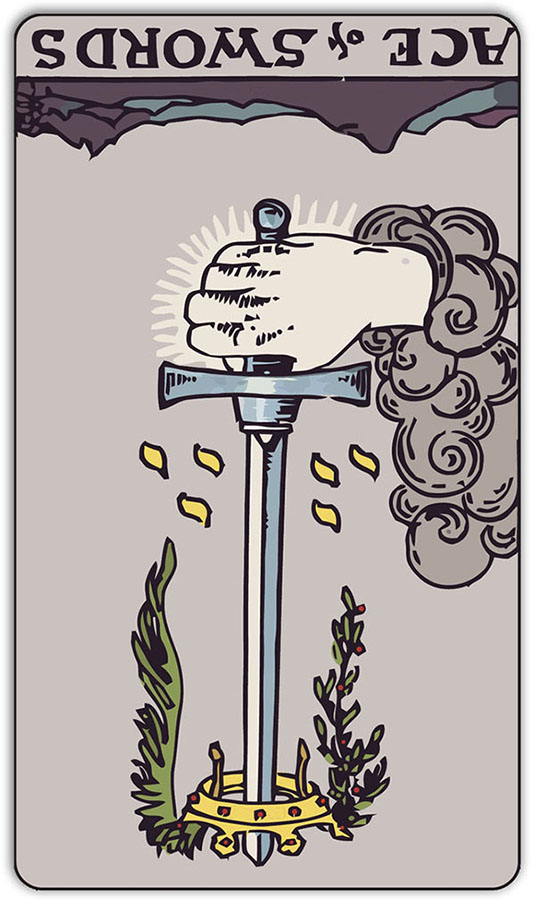What is ego? In spirituality, psychology, and in everyday use.
Probably the most misunderstood word in spirituality and psychology is the word “ego”. It can mean a false ego or an authentic ego, but in most use, it refers to the false ego. The word, depending on context, can be replaced by the word “I” or “a mask”, but is commonly understood as “the mask” of a person. However, I would like to explore the “I” variation of the word for a bit.
Ego; one’s idea of self
Ego, quite literally translated, means “I”. It means a person’s idea of who they are, essentially, the collection of qualities that they believe to represent themselves. Everything that follows the words “I am” describes a person’s own perception of themselves; their ego; “I am successful.” “I am loving.” “I am intelligent.” The sentences and descriptions that a person attaches to themselves can be true or untrue, or semi-accurate. If they are untrue, the person’s ego is false, unhealthy ego, if they are true, the person has a good, realistic self-image.
It is helpful to remember and internalize this: A person’s false ego contains plenty of positive traits. It can also contain negative traits, but it is generally not connected to the word ego in that context because ego is generally considered to be a positive lie about oneself, but technically speaking, it can be negative, too. However, what I would like to point out is that sentences such as “I am not a racist” “I believe in gender equality” “I am spiritual” “I am tolerant” are very likely false sentences and a part of a false ego. Just because someone says nice things about themselves or others doesn’t make them true. A yogi master is just as likely to have a false ego than a compulsive gambler would, they would simply tell themselves a different lie.
The ego, the idea of self, consists of a few parts:
Obviously, I am no longer talking in the context of Jungian psychology, that I know of, although there might be crossovers… But, the ego consists of several parts:
1. Who you think you authentically are. “I am”.
2. Who you think others think you are. “They think I am / they would never think that I am…”
3. Who you think others think you should be(come): “Everyone/my mom/my dad/my friends think I should be…”
4. Who you wish/insist others would see you as.
5. Who you would like to develop into: “I am this now, but in the future, I really wish I could be… (if I was able to / had the opportunity to / had the permission to
A person might be lying to themselves in the point 1. They might be mistaken about both 2 and 3, and be in denial about the number 5. The most acute part of the ego is probably the number 3. The tormenting list of things that you think you should become in order to be a good person. This list is also YOUR idea of what other people should be, too, so you will be influencing other people’s ego point 3 with this one; usually quite identical with your own list of shoulds. What is telling, though, how much difference there is with your list of what others should be and what you should be; Do you demand more of yourself than others or vice versa?
This blog, as all my writing, is focused on making 5 part of your ego identical to 1 and 4, so that your “I should be who I want to be” statement would eventually become your “I am” statement. That should also be in that order, even though mostly, people attempt to fulfill their ego from the perspective of I should want to be who I should be, instead the other way around. I wish my people will stop aiming to please others and will simply realize that they are in charge of their own personality and they should aim to find those people around themselves who value that personality and who want to drive them towards the person’s OWN ideal personality because that is who they love, too. For instance, if you want to be a world-class actor, the last thing you want to do is to surround yourself with people who consider acting a vain useless past-time that will never amount to anything good. You will want to surround yourself with people who see acting as a fantastic way to alter attitudes and to educate and elevate people, and, at the very least, make other’s lives a little more enjoyable for the duration of watching them play. The people who you’d want to surround yourself with see the value in acting and will drive you further and higher on that path, not try to drag you down and stop wasting everyone’s time with it.
We can also throw in another type of an ego reaction: A lot of people do not tolerate people who make other kinds of life choices to themselves. They feel constantly undervalued when people they know do not want to become like them and feel that everyone who makes a different type of a life choice or goal is somehow telling them that they are not valuable the way they are. This is clearly a part of a poor self-esteem, because people who have genuine appreciation for themselves would know that “I am like this, but I want nothing for you but for you to become exactly the person you want to become, no matter what that is, and I will love you for your happiness, not because you decide to become unhappy so that I can be satisfied you agreed to live your life like I did.” These people are often convinced that their life choices are supreme because they have made the choices that make them genuinely happy or at least accepted among their peers. The more approval and acceptance they receive for their life choices, someone else’s decision to do something different is like telling them they are not respected as authorities on how to meet people’s expectations. One symptom in celebrity life related to this is to get married and start a family and try to “give the children a normal life” because the life-experts demand you to. Failing to meet this demand will possibly have a negative effect on your “approval rating”, therefore it seems like a good business move to do exactly that. (Although I am not saying that marriage and family wouldn’t be a natural instinct, too, but the pressure to take that route by a certain age is huge among famous and non-famous people alike.)
Authentic ego, giving, and selfishness
Finally, let’s brush onto the area of selfishness and the “worship” of your authentic “I really want to” ego. When a person goes after their dreams without caring what other people think of it, they are easily seen as narcissistic and selfish. “I sacrificed my life for… you must do so, too!” being the demand. Now… If someone’s definition of selflessness requires another person to self-sacrifice, they’ve got the phrase wrong. Self-sacrifice is self-sacrifice, not selflessness. Anyone who requires another person to sacrifice themselves for someone else is not asking for the other person to not be selfish, they are asking them to become a martyr. If they, themselves, decided to self-sacrifice for someone else, that is their business, as far as I am concerned, but in all honesty, who wants to teach their children to sacrifice their own happiness in order to make other people just as miserable as they themselves were is beyond my understanding. “I was unhappy, therefore, you and your children must be unhappy, too!”
I would much rather see a new generation emerge, who teach their children to seek their own happiness and what form it takes, and support them and guide them towards that goal the best they can, and simply ask them for one thing: “Do not take your happiness out of the backs of others.” This, obviously, is something that people who ask for self-sacrifice will see differently. They feel that “since you are not doing what we ask of you, you are taking your happiness out of our backs.” This is not the case, though, because if anyone is stopping anyone from realizing their dreams for their own sake or the sake of the family, that should be considered the selfish act, although it is so common, that asking for it is the norm rather than the exception, and as such, the feelings of guilt and entitlement are wrapped up in that interaction as tightly as can be.
Initially, this cycle of selfishness vs. self-sacrifice is a result of two thinker types colliding and unwittingly forming toxic soul-bonds to each other. One teaches the other that there is a future to this relationship by giving things to them thinking nothing of it, the other receiving it thinking this is a promise of a bond, a show of true friendship. As they are taught to receive, they consider it the duty of the giver to keep doing that, because that is what they have taught the other to expect out of the relationship. This sounds like an urge to not give, but I should emphasize that you should never make a gift too personal if you do not mean it as a token of lasting friendship. Giving to anyone is safe for as long as it is quite impersonal, and you keep an air of “a random gift” about it rather than “a duty I serve”.
These bonds become relevant when the people who you have taught in previous lifetimes to expect charity and help from you considers you as their personal piggy bank refuse to let you realize your dreams because they see you as a part of their soul group, and when you do go after your dreams they consider you selfish and inconsiderate for not performing your duty towards them. Tricky, I know.
People think differently and are in different stages of soul development, and as such, we react to such things as expectation and peer pressure differently. Ego is interpreted differently in different development stages and thinker types, but as celebrities you have more than enough reason to be cautious – powerful people collect a lot of unwanted attention from weaker souls – that, eventually, clog up and create a near unpenetrable wall around you, and as much as you want to help and give back, this might go directly against your own benefit and harm you rather than elevate you to a higher level of consciousness.
Subscribe to get a Daily Message
*) Term changed after this post was originally written. Fractions of old terms may exist elsewhere in the post. Read about term updates.
**) Narcissists are Young Souls left alone to survive and they're doing their best. Their emotional age ranges from 3 to 17 -year old. The younger, the more severe the narcissism.
© 2001-2024 Copyright Sebastyne - CRC-32 ecd1f512. - All rights reserved.

